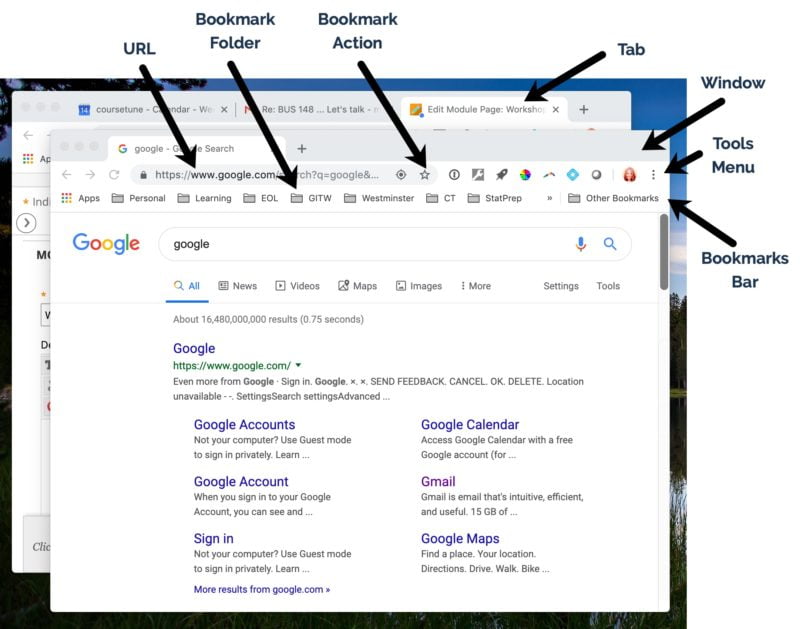Hey there, tech-savvy friend! Let’s dive into the world of web browsers because, let’s be honest, they’re kinda like the unsung heroes of our online adventures. Imagine this: you’re sitting on your couch, scrolling through memes, shopping for that perfect pair of sneakers, or researching how to make the best pasta ever. But have you ever stopped to think about what’s actually making all of that possible? That’s right—it’s your trusty web browser. So, what exactly is a web browser, and why does it matter so much in mastering the basics of the internet? Let’s break it down together, shall we?
Now, if you’re reading this, chances are you’ve already used a web browser at least once in your life. But don’t worry if you’re not exactly sure how it works or what makes it tick. Think of this article as your personal guide to understanding the ins and outs of web browsers. Whether you’re a tech newbie or someone who just wants to level up their internet knowledge, we’ve got you covered.
Before we dive deeper, here’s a quick heads-up: mastering the basics of web browsers isn’t just about knowing what they are. It’s about understanding how they impact your online experience, from security to speed and everything in between. So, grab your favorite snack, get comfy, and let’s unravel the mystery of web browsers together!
Read also:Meet Divaflawless The Rising Star Redefining Beauty Standards
Table of Contents
- What Is a Web Browser?
- A Brief History of Web Browsers
- How Do Web Browsers Work?
- The Most Popular Web Browsers Today
- Choosing the Right Browser for You
- Browser Security: Keeping You Safe Online
- Browser Performance: Speed and Efficiency
- Customizing Your Browser Experience
- Common Mistakes to Avoid When Using a Browser
- The Future of Web Browsers
What Is a Web Browser?
Alright, let’s start with the basics. A web browser, in its simplest form, is a software application that allows you to access and interact with the internet. Think of it as your personal gateway to the vast world wide web. When you type in a URL or click on a link, your browser fetches the requested information from the web server and displays it on your screen in a way that’s easy for you to understand.
Now, here’s the fun part: web browsers don’t just display text. They can handle images, videos, audio, and even complex web applications. Ever wondered how you can watch YouTube videos or shop online without any hassle? Yep, that’s all thanks to your web browser.
Why Do Web Browsers Matter?
Here’s the deal: web browsers are more than just tools for browsing the internet. They’re essential for everything we do online, from staying connected with friends and family to managing our work and personal lives. Without a reliable browser, navigating the web would be like trying to drive without a steering wheel—chaotic, unpredictable, and definitely not fun.
And let’s not forget about security. A good web browser acts as your first line of defense against online threats like malware, phishing, and other cyber nasties. So, yeah, mastering the basics of web browsers isn’t just about convenience—it’s about staying safe and secure in the digital world.
A Brief History of Web Browsers
Believe it or not, web browsers have come a long way since their humble beginnings. The first-ever web browser, called WorldWideWeb (later renamed Nexus), was created by Sir Tim Berners-Lee back in 1990. Yeah, that’s right—web browsing has been around for over three decades!
Fast forward to the 1990s, and we saw the rise of some iconic browsers like Mosaic, Netscape Navigator, and Internet Explorer. These early browsers paved the way for the modern browsers we use today. But the real game-changer came in 2003 with the release of Mozilla Firefox, followed by Google Chrome in 2008. These browsers revolutionized the way we interact with the web, introducing features like tabbed browsing, extensions, and lightning-fast performance.
Read also:How Much Do The Savannah Bananas Players Get Paid A Deep Dive Into Minor League Baseball Salaries
Key Milestones in Web Browser Evolution
- 1990: WorldWideWeb (Nexus) – The first web browser ever created
- 1993: Mosaic – The first widely used graphical browser
- 1995: Internet Explorer – Microsoft’s answer to Netscape Navigator
- 2003: Mozilla Firefox – A browser built by the open-source community
- 2008: Google Chrome – The browser that changed the game
How Do Web Browsers Work?
Alright, let’s get a little technical here (don’t worry, I’ll keep it simple). When you type a URL into your browser’s address bar, here’s what happens behind the scenes:
- Your browser sends a request to the web server hosting the website you want to visit.
- The server responds by sending back the requested data in the form of HTML, CSS, and JavaScript files.
- Your browser then interprets these files and renders them into a visually appealing webpage that you can interact with.
And all of this happens in the blink of an eye! Isn’t that crazy? But here’s the thing: not all browsers handle this process the same way. Some are faster, more secure, or more resource-efficient than others. That’s why choosing the right browser for your needs is so important.
Behind the Scenes: The Rendering Engine
Every web browser has something called a rendering engine, which is responsible for turning raw code into the beautiful webpages you see on your screen. Different browsers use different rendering engines. For example:
- Google Chrome uses Blink
- Mozilla Firefox uses Gecko
- Safari uses WebKit
- Microsoft Edge uses EdgeHTML (previously Trident)
These rendering engines play a huge role in determining how fast and smoothly a webpage loads. So, if you’re someone who values speed and efficiency, you’ll want to pay attention to which rendering engine your browser uses.
The Most Popular Web Browsers Today
Now that you know what a web browser is and how it works, let’s talk about the big players in the browser world. As of 2023, here are the top five most popular web browsers:
- Google Chrome – Known for its speed, simplicity, and extensive library of extensions
- Mozilla Firefox – Loved for its privacy features and open-source philosophy
- Safari – Apple’s default browser, optimized for macOS and iOS devices
- Microsoft Edge – A solid contender with improved performance and compatibility
- Opera – A lesser-known browser with built-in features like a free VPN and ad blocker
Each of these browsers has its own strengths and weaknesses, so the best one for you will depend on your specific needs and preferences.
Which Browser Should You Choose?
Here’s a quick breakdown to help you decide:
- If you prioritize speed and compatibility, go for Google Chrome.
- If privacy is your top concern, Mozilla Firefox might be the way to go.
- If you’re an Apple user, Safari is a great choice for seamless integration with your devices.
- If you want a browser that’s both fast and secure, Microsoft Edge is worth considering.
- If you’re looking for a browser with unique features like a built-in VPN, Opera could be your best bet.
Choosing the Right Browser for You
Choosing the right web browser isn’t just about picking the most popular one. It’s about finding the one that fits your lifestyle and meets your needs. Ask yourself these questions:
- Do I value speed and performance?
- How important is privacy and security to me?
- Do I need compatibility with certain websites or applications?
- Am I looking for a browser with specific features like ad blocking or a built-in VPN?
Once you’ve answered these questions, you’ll have a much clearer idea of which browser is right for you.
Tips for Switching Browsers
If you’re thinking about switching browsers, here are a few tips to make the transition smoother:
- Export your bookmarks and import them into your new browser.
- Sync your data across devices using the browser’s built-in sync feature.
- Explore the browser’s settings to customize it to your liking.
- Check out available extensions or add-ons to enhance your browsing experience.
Browser Security: Keeping You Safe Online
Let’s face it: the internet can be a scary place. From phishing scams to malicious websites, there are plenty of threats lurking around every corner. That’s why browser security is more important than ever.
Most modern browsers come equipped with a range of security features to protect you from these threats. These include:
- HTTPS encryption to secure your connection
- Phishing and malware protection
- Regular security updates to patch vulnerabilities
- Private browsing modes to keep your activity private
But here’s the thing: no browser is completely foolproof. That’s why it’s important to practice safe browsing habits, like avoiding suspicious links and keeping your browser up to date.
Best Practices for Staying Safe Online
Here are a few tips to help you stay safe while browsing the web:
- Use a strong, unique password for each of your online accounts.
- Enable two-factor authentication whenever possible.
- Be cautious when clicking on links or downloading files from unknown sources.
- Regularly clear your browsing history and cookies to protect your privacy.
Browser Performance: Speed and Efficiency
Let’s talk about something we all care about: speed. Nobody likes waiting for a webpage to load, right? That’s why browser performance is such a big deal. Here are a few factors that can affect how fast your browser runs:
- Rendering engine efficiency
- Hardware acceleration
- Number of open tabs and extensions
- System resources like RAM and CPU
If you’re experiencing slow performance, try closing unused tabs, disabling unnecessary extensions, or clearing your cache. And if all else fails, consider upgrading your hardware or switching to a faster browser.
How to Optimize Your Browser for Speed
Here are a few tricks to help you get the most out of your browser:
- Limit the number of extensions you install.
- Use lightweight themes and customization options.
- Regularly update your browser to the latest version.
- Close unused tabs to free up system resources.
Customizing Your Browser Experience
One of the best things about modern web browsers is how customizable they are. From themes and extensions to keyboard shortcuts and sync settings, there are endless ways to tailor your browser to your liking.
For example, you can install extensions to block ads, enhance privacy, or improve productivity. You can also customize your browser’s appearance with colorful themes and personalized backgrounds. And if you’re someone who loves keyboard shortcuts, most browsers offer a wide range of customizable shortcuts to make your life easier.
Top Extensions to Enhance Your Browser
Here are a few must-have extensions to consider:
- AdBlock Plus – Blocks annoying ads and trackers
- Grammarly – Helps you write error-free emails and documents
- Dark Reader – Turns any webpage into a dark mode
- Honey – Finds you the best deals


